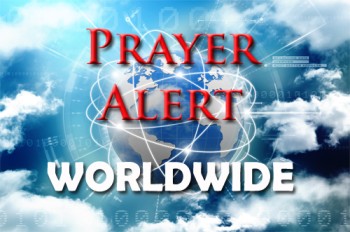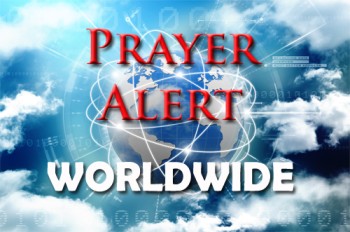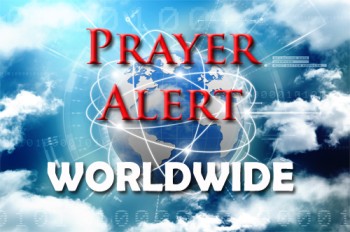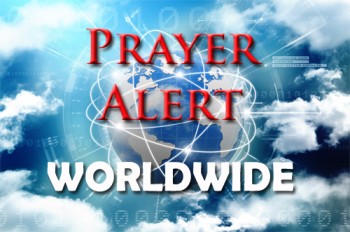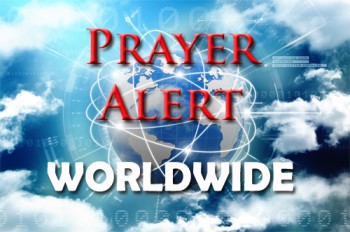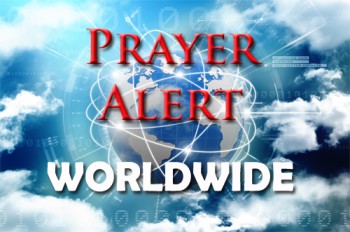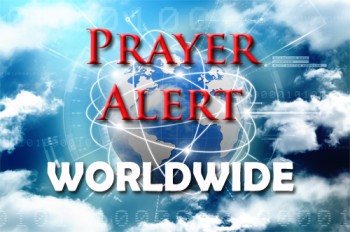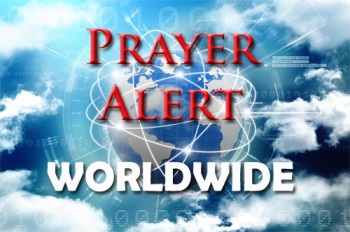Displaying items by tag: Africa
Mali: abuses by former Wagner mercenaries
Testimonies from refugees in Mauritania reveal severe human rights abuses committed during counter-insurgency operations in Mali involving Russian mercenaries formerly associated with the Wagner Group. Witnesses describe arbitrary detentions, torture, and extrajudicial killings as civilians were accused of aiding jihadist insurgents. One former shopkeeper recounted being detained, threatened, and mistreated before later fleeing the country with his family. Others reported loved ones killed without explanation or being beaten while performing everyday tasks like herding livestock. Human rights monitors say these actions have spread fear and driven tens of thousands to flee across the border. Although Wagner has formally withdrawn, many of its operatives are now part of Russia’s Africa Corps, and concerns remain that abuses continue under a new name. Calls are growing for accountability and justice for victims, as communities struggle with trauma, displacement, and the loss of safety in their homeland.
Sudan: RSF announces humanitarian truce after army rejects ceasefire proposals
The devastating civil war in Sudan continues, with renewed international pressure for a ceasefire. The RSF, locked in conflict with the army since April 2023, has announced a three-month humanitarian truce. It says the move is in response to global diplomatic efforts, including initiatives from the Quad mediators (the USA, Saudi Arabia, the UAE, and Egypt). However, deep distrust remains. Army chief Abdel Fattah al-Burhan rejected the US-backed proposal, calling it biased due to the UAE’s involvement and accusing the mediators of favouring the RSF. There are persistent allegations that the UAE is secretly arming the RSF, though it denies the claims. The conflict’s political roots remain unresolved: proposals have suggested transitions toward civilian rule without either military faction holding power - an idea the army has strongly opposed. In October the RSF seized the key Darfur city of El-Fasher after a relentless siege which sparked warnings of crimes against humanity and genocide. The warring parties have so far violated every ceasefire agreement.
Ethiopia: sexual violence as a weapon in forgotten war
Women and girls in Ethiopia’s Amhara region are facing a hidden crisis of conflict-related sexual violence as fighting between the national army and Fano militias continues. Survivors describe soldiers entering homes, threatening family members, and committing rape as a weapon of intimidation and punishment. Many victims, some as young as eight, are left in physical pain, psychological trauma, and deep shame, fearing stigma from their communities and even from their churches. Limited medical access means many do not receive the urgent treatment which could prevent HIV or pregnancy. Health workers report rising cases, but say that the numbers available represent only a fraction of the suffering, especially as law and order has broken down and accountability is rare. Rights groups warn that the violence reflects a pattern of impunity within Ethiopia’s security forces. For women like Enat, who is now raising a child conceived by rape, survival is overshadowed by fear, loss, and an uncertain future - yet also remarkable courage.
South Africa: Water Warriors battle flood risks and pollution
In Alexandra, South Africa’s oldest township, on the outskirts of Johannesburg, local volunteers known as the Alexandra Water Warriors are working tirelessly to protect their community from worsening flood risks and pollution. Using garbage-trapping nets across the Jukskei River, they are trying to prevent debris from clogging the waterway - a growing danger linked to illegal dumping and climate-intensified flash floods. The stakes are high: when the river overflows, bridges disappear underwater and children are unable to reach school. Despite limited resources, the Water Warriors plant native trees, clean riverbanks, and recycle collected waste into items that can bring in income. Their efforts have significantly reduced visible pollution, demonstrating the power of grassroots action in a place overshadowed by extreme inequality: Alexandra lies within sight of affluent Sandton, yet lacks basic infrastructure support. As world leaders gather in Johannesburg to discuss climate resilience, communities like Alexandra urgently need the global partnership and investment they cannot secure alone.
South Africa: prominent Afrikaners condemn Trump’s allegations ahead of G20
Donald Trump has declared that no US officials will attend the upcoming G20 summit in Johannesburg, citing ‘human rights’ concerns related to alleged persecution of white Afrikaners. The decision has drawn sharp criticism both internationally and within South Africa. Trump’s administration has taken a hard line against Pretoria, imposing tariffs, cutting aid, and granting fast-track refugee status to Afrikaners while blocking most other refugees. Over forty Afrikaner leaders, including journalists, clergy, and academics, have denounced the president’s claims as false, stressing that no white-owned land has been seized and that violent crime affects all races. They called his narrative divisive and damaging to post-apartheid reconciliation. Following Trump’s decision, a planned visit to Kenya by JD Vance, which was expected to strengthen relationships, has also been cancelled: see
Senegal: power struggle between president and prime minister
A political showdown has erupted in Senegal between president Bassirou Diomaye Faye and prime minister Ousmane Sonko, threatening to fracture the alliance that brought them to power. The dispute began when Faye dismissed Aïssatou Mbodj, a close Sonko ally, from her leadership role in the ‘Diomaye Président’ coalition, replacing her with his own confidante, Aminata Touré. Sonko’s Pastef party swiftly condemned the move as illegal, asserting that the president lacked authority to make such a decision and accusing him of betraying the coalition’s founding principles. The standoff exposes deep divisions over control and ideology at the heart of Senegal’s leadership, raising doubts about whether Faye can govern effectively without his powerful and popular prime minister. With rival factions now entrenched and public confidence wavering, the confrontation risks paralysing government operations and destabilising one of West Africa’s historically steady democracies.
Nigeria: Trump’s military threats over ‘Christian genocide’
Donald Trump’s threats to cut aid and launch military strikes against Nigeria over alleged ‘Christian genocide’, while resonating with US evangelicals, might misrepresent and oversimplify the country’s complex crisis. Nigeria’s conflicts, spanning insurgency, banditry, and communal clashes, are not purely religious but deeply rooted in ethnicity, identity, and government failures. Analysts warn that US intervention, whether through sanctions or drone strikes, could devastate civilians already trapped between terrorists and insecurity. History shows that ‘precision’ attacks often result in innocent casualties, worsening humanitarian crises. Arguably, Trump’s decision to freeze most foreign assistance programmes have exacerbated the problem, resulting in job losses for about 28,000 health workers and pushing vulnerable Nigerians deeper into hardship. His threats pose a dilemma for President Tinubu. If he cooperates, he might appear weak, but defying Washington might risk economic and military pain.
Tanzania: unprecedented level of protest after landslide presidential election
The recent election which saw president Samia Suluhu Hassan win with 98% of the vote has exposed deep cracks in Tanzania’s democratic foundations. The landslide result - achieved amid opposition arrests, media restrictions, and reports of violence - has drawn widespread criticism from observers and foreign governments. What followed was unprecedented in Tanzania’s history: mass youth-led protests erupting across major cities, demanding electoral justice and democratic reform. The unrest reflects a broader generational awakening in Africa, where frustration with corruption, repression, and economic inequality is driving young citizens to demand accountability. With around 77% of the population aged under 35, the country’s future hinges on how leaders respond to this rising tide of civic resistance. Despite the violence and censorship surrounding the protests, they reveal a powerful truth: citizens are no longer content with symbolic democracy. Tanzania’s youth are asserting their right to shape their nation’s destiny. Going forward, the demand for a new constitution should be the priority.
Africa: Gospel spreading at ‘explosive’ rate'
At the World Evangelical Alliance general assembly in Seoul, researcher Jason Mandryk from Operation World revealed that evangelical Christianity is growing faster in Africa than anywhere else in the world. In 1960 evangelicals comprised 8% of global Christians; today, with around 650 million believers, they exceed 25 percent. Nearly 70% of global Christian growth now occurs in Africa, where vibrant churches thrive amid rapid urbanisation and strong family life. Mandryk noted that while Western growth is modest, Africa, Asia and Latin America are reshaping the face of Christianity. Yet he warned that discipleship, leadership training and moral integrity must remain priorities if this expansion is to mature. David Tarus of the Association of Evangelicals in Africa said 90% of African pastors lack formal theological training, calling for education to reach local communities rather than relying on institutions. Both leaders urged clarity, humility and renewed holiness as the movement’s influence widens. The shift, Mandryk said, shows that the 'future of Christianity' has already arrived - rooted in the Global South. See
Nigeria and South Africa removed from global ‘grey list’
Nigeria, South Africa, Mozambique, and Burkina Faso have been removed from the Financial Action Task Force’s (FATF’s) global ‘grey list’, marking a crucial milestone in Africa’s financial integrity efforts. Once seen as high-risk for money laundering and terrorist financing, these nations have implemented sweeping reforms which have restored investor confidence and strengthened global partnerships. Nigeria’s tighter oversight of mobile money and anti-money-laundering laws, and South Africa’s expanded powers for financial regulators, have begun rebuilding trust in governance and transparency. Mozambique and Burkina Faso have improved their ability to track illicit cross-border transactions linked to armed groups. The delisting signals international recognition of progress - but it also serves as a reminder that vigilance and accountability must continue. For ordinary citizens, these reforms bring promise of greater economic stability, job creation, and stronger consumer protection: neighbouring countries could experience a confidence rebound, especially in attracting greater international investment.
